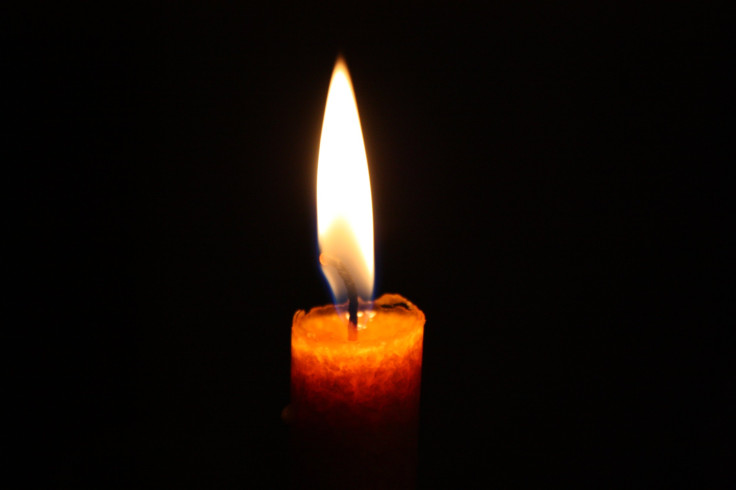Why We're Afraid Of The Dark: An Evolutionary (And Rational) Impulse To Protect Ourselves

I’m lying in my bed in my room in Ohio, about to drift off to sleep, when I begin to hear scratching above my head. It’s a windless still June night, so the noise is rather strange. It stops then starts again several times — and soon, the scratching turns into the sound of heavy, dragging footsteps shuffling across the wooden floorboards of the attic directly above my room. It sound as if… there’s someone crawling across the attic floorboards right above me?
This is where I begin to feel ice settling in my bones, and my ears perk up to listen to impending danger. Is it a murderer? Or perhaps a burglar trying to remain as quiet as possible as he drags his feet across the attic boards? Is there seriously someone in the attic right now?
Within minutes, I rush into my mother’s room and tell her there’s someone in the attic. I’m frantic, but she tells me it’s nothing and to go back to sleep (mind you, I’m 21 years old during this scenario).
The next morning, we discover that there’s an infestation of raccoons living on our roof. The same sound of scratching and shuffling and crawling that terrified me out of my wits the night before was somehow not as freaky during the daylight; in fact, it was rather humorous.
Certainly, there’s something inherent about darkness that scares us. It’s not that we’re afraid of the dark in and of itself — we’re afraid of what the darkness hides. During the day, they’re silly raccoons or benign silhouettes of clothes draped over furniture, but in darkness these things tend to be monsters under our beds, skeletons in our closets, or sociopathic killers crawling across the floorboards of our attics. Our imaginations make up for our lack of ability to see through the shadows.
If you’re well over the age of 10 and you still get creeped out by pitch darkness, you’re not irrational — and you’re not alone. The advice columnist Mariella Frostrup writes in The Guardian about her own personal fear of darkness, despite the fact that she is a grown woman.
“I can’t sleep in an isolated place without pills, earplugs, and both my children in bed with me for fear of scary, feral characters with a hankering for the wilderness,” Frostrup writes. “In the city I wake bolt upright in the small hours convinced that intruders are marauding through our apartment despite Swiss bank-style security arrangements. Instead of delivering me into oblivion, too often exhaustion heralds hours of agitated wakefulness, initially kick-started by a creak in the floorboards or the rattle of a window pane.”
In fact, being afraid of the dark isn’t irrational or childlike; it’s a natural human impulse. It turns out that the feelings of anxiety and uneasiness we feel when the lights go out are a reflection of an evolutionary impulse to remain safe.
Lack Of Light
The darkness impairs our vision, first and foremost, which is a huge part of our ability to understand and manage our surroundings. Darkness blinds one of our most important senses, and leaves us with a lack of control and vulnerability.
Frostrup writes that compared to nocturnal creatures that developed ways to cope with the dark, “humans…despite an evolutionary journey that’s seen us move from four legs to two, from instinctively to intellectually motivated creatures, haven’t adapted but been forced to invent to compensate for our challenged abilities” in the dark. We’ve been forced to make up for our lack of night-seeing ability by our use of candlelight and ultimately the invention of electricity. When these things go out, we’re once again faced with our primal flaw: lack of night vision.
Vulnerability
Researchers believe that fear of darkness stems from genetic encoding that hardwired us to avoid predators at night. One study, published in PLoS ONE, notes that lion attacks in Tanzania are 60 percent more likely to occur after 6 p.m. than during the day. (Interestingly, the study also found that the lions are more likely to attack and hunt humans on days following a full moon, showing that animals are affected by the tides of the moon). It’s likely that dangerous nocturnal animals in primitive times posed a huge threat to human survival, making us far more wary during night hours and thus evolutionarily primed to experience anxiety when it gets dark.
Darkness also signals a time for sleep and rest. Sleeping, though essential to living, also means giving up all arms and becoming utterly vulnerable and oblivious to your surroundings. You’re more likely to be caught unaware when you’re sleeping, compared to being awake and alert.
This is perhaps why we fear crime at night, as well — because we’re more likely to be unaware of the burglar entering our homes at 3 a.m. Walking home late at night as a lone woman, likewise, is considered a major no-no, since it puts them in danger that wouldn’t be as severe during the daytime. But an infographic created by Truilia shows that in fact, crimes occur pretty consistently throughout the day and night — which means that the fear of crime at night may be somewhat unsubstantiated.
Faced With Your Own Demons
But in the modern day and age, especially in developed countries, we don’t have to worry about lion attacks in the jungle or warring tribes pillaging our villages in the middle of the night, catching us unaware in our tents. Instead, nowadays, darkness poses another threat to us: a mental one.
As we lay in bed trying to go to sleep, the work day over and all distractions aside, we often find ourselves careening deeper into our own minds and subconscious psyche. The demons we hide away during the daytime, our deep-rooted worries and sadness and fears, all begin to reappear and creep back into our awareness. Thus the night serves as a time when our brain sways between its daytime pragmatism and its evening subconscious dreamscape. For some, the problems they hide are too overwhelming to face during the day, so they’re able to put them aside. But at night, internal demons — not necessarily the demons in our closets — return to our minds.
Sigmund Freud believed that our fear of darkness stems from the childhood trauma of separation anxiety from our parents as we are abandoned in our dark rooms for the night. The soft glow of night lights often offer us small consolation when, as kids, our fears and vulnerability are reinforced without our parents by our side.
Ultimately, fear of darkness ranges from being a child’s fear to entirely evolutionary and rational — to becoming a severe disorder (nyctophobia) that requires cognitive behavioral therapy. For most of us, darkness doesn’t pose such a severe threat. And if it does make the hair on our necks stand on end, usually our rational, logical brains can talk ourselves down from it.
Whether the darkness lets our imagination paint potential monsters and threats in the shadows or coaxes out our internal knots, it ultimately stems from a fear of the unknown. While worrying about what the shadows (or the future) may hold can be scary, it’s easier to remember that even in the darkest nights, there’s always a moon that can shine light on our paths. And when the lights do turn on, we’ll often laugh at our own overactive imaginations and inability to see what was right in front of us the whole time.



























